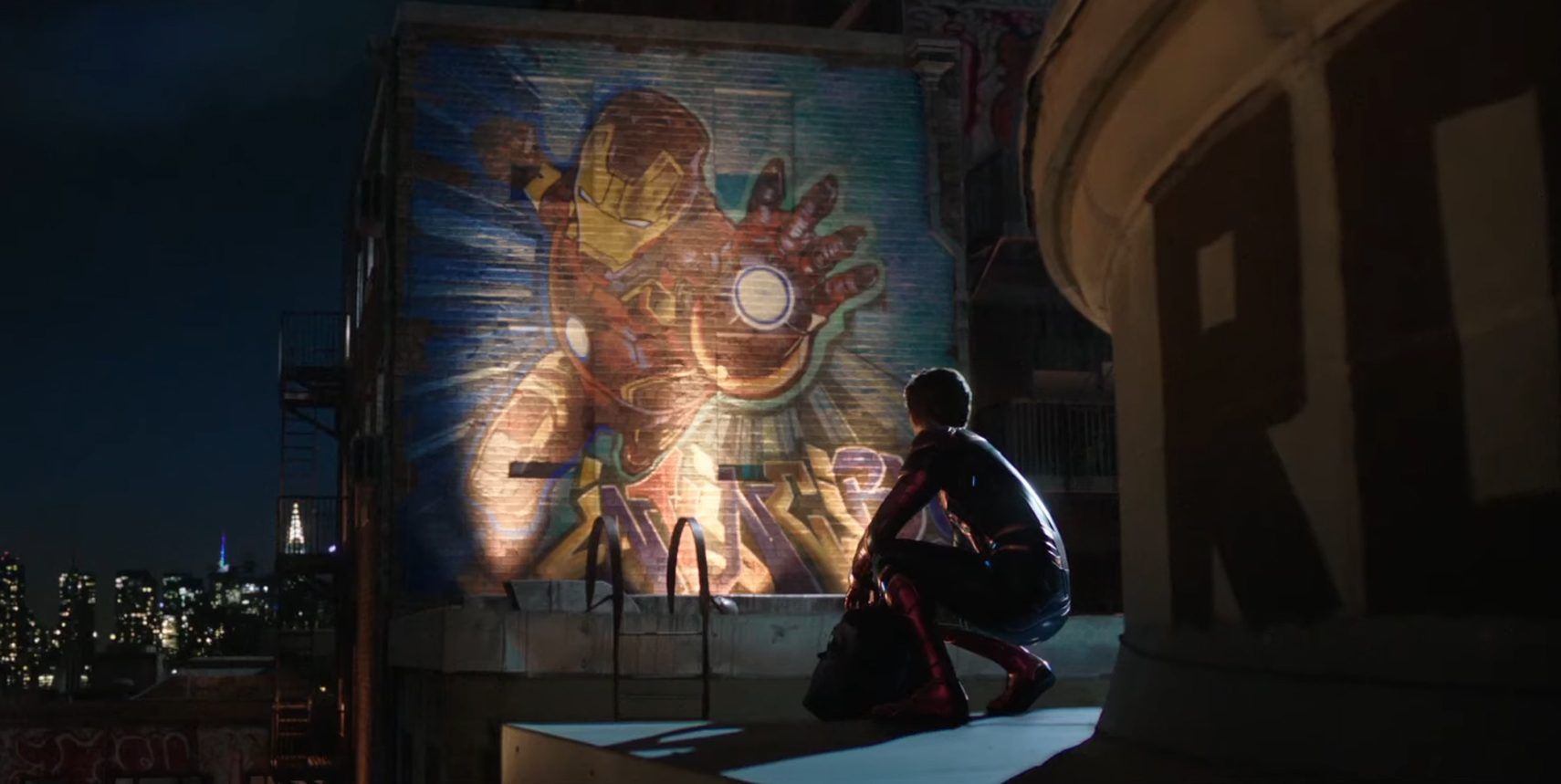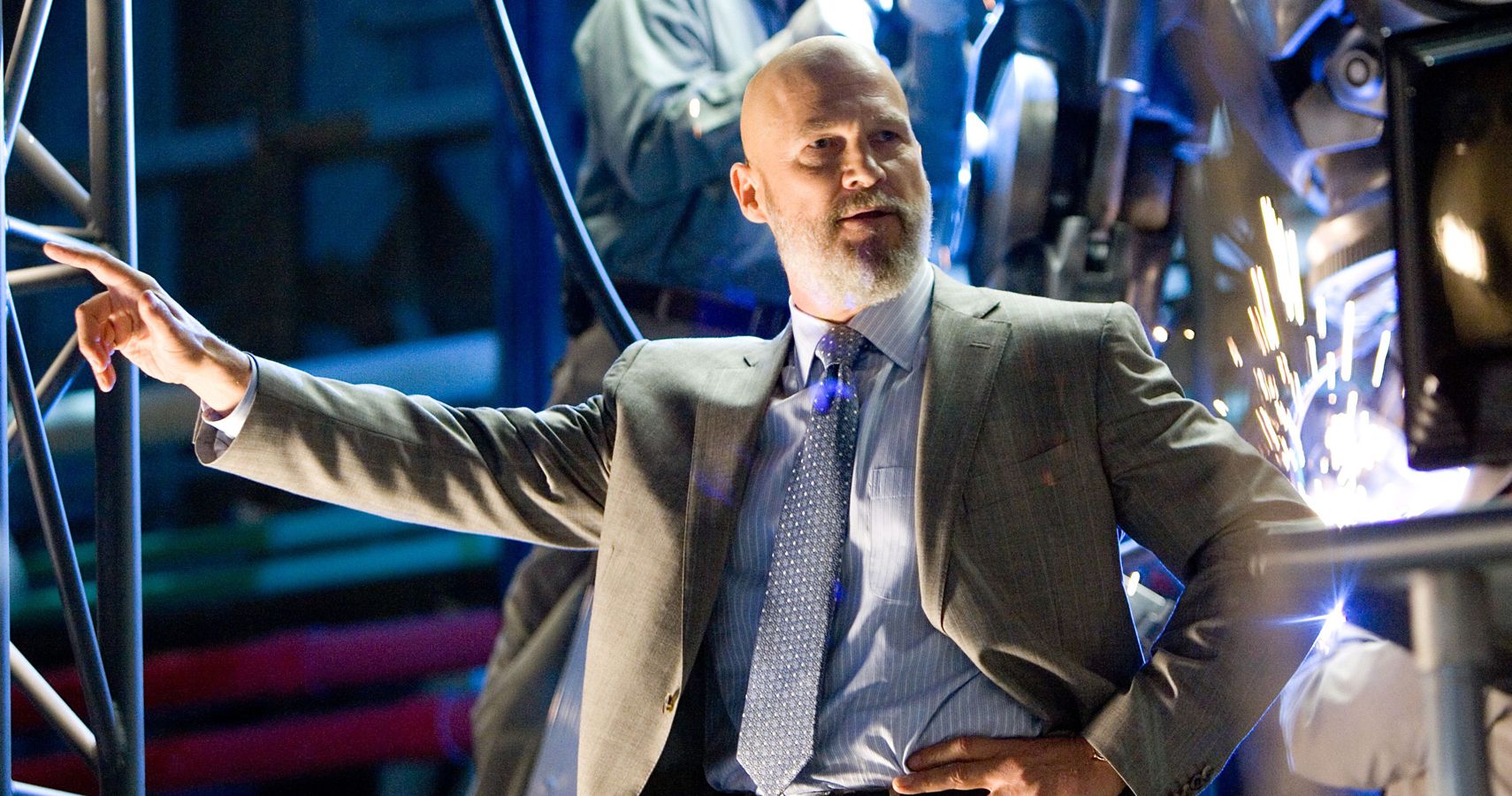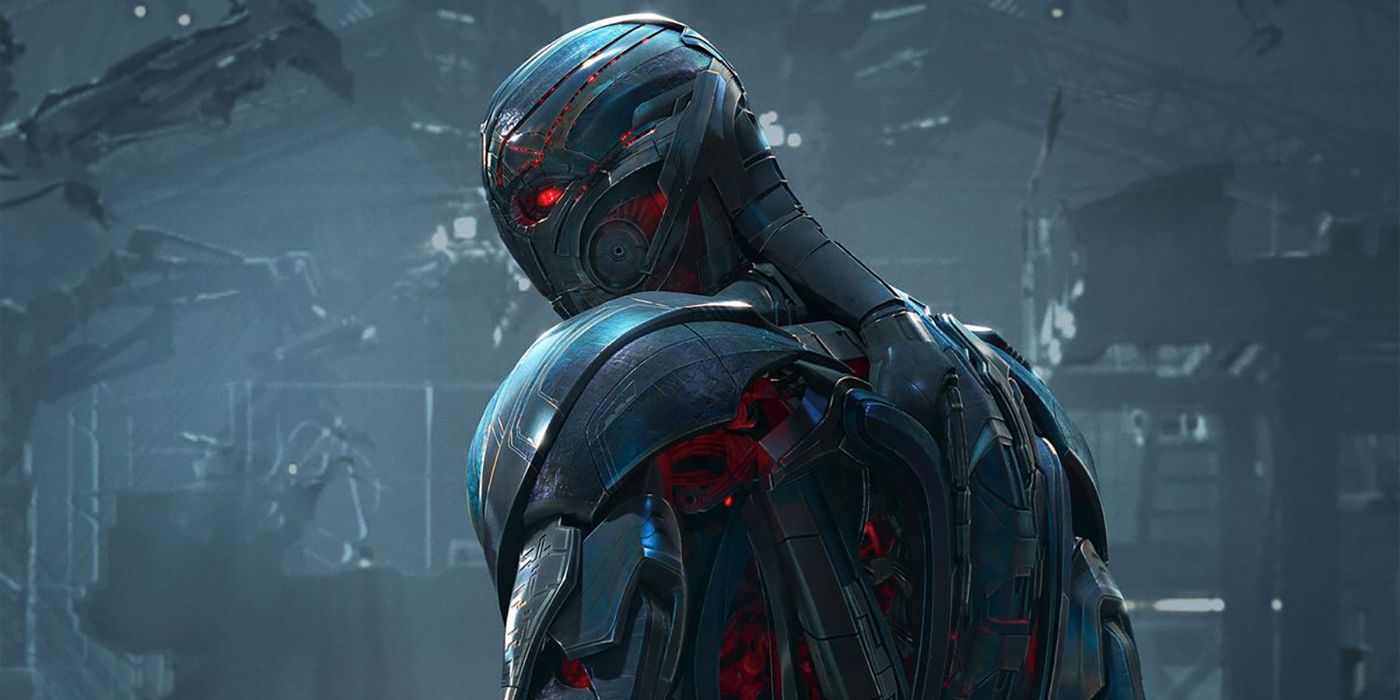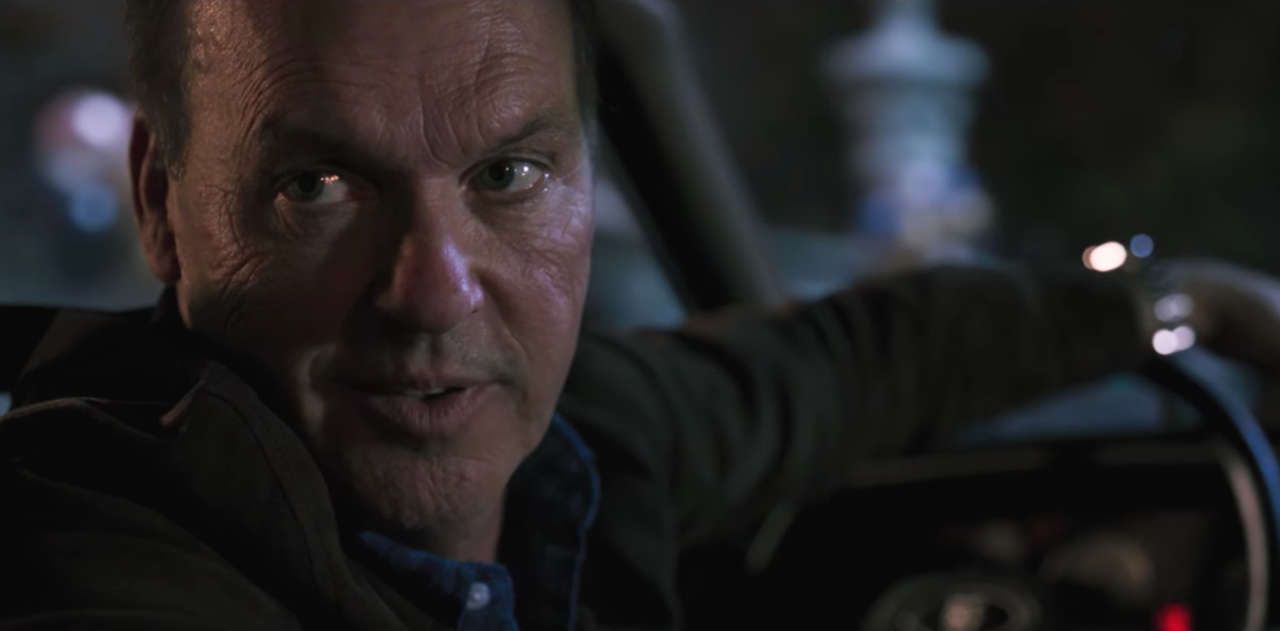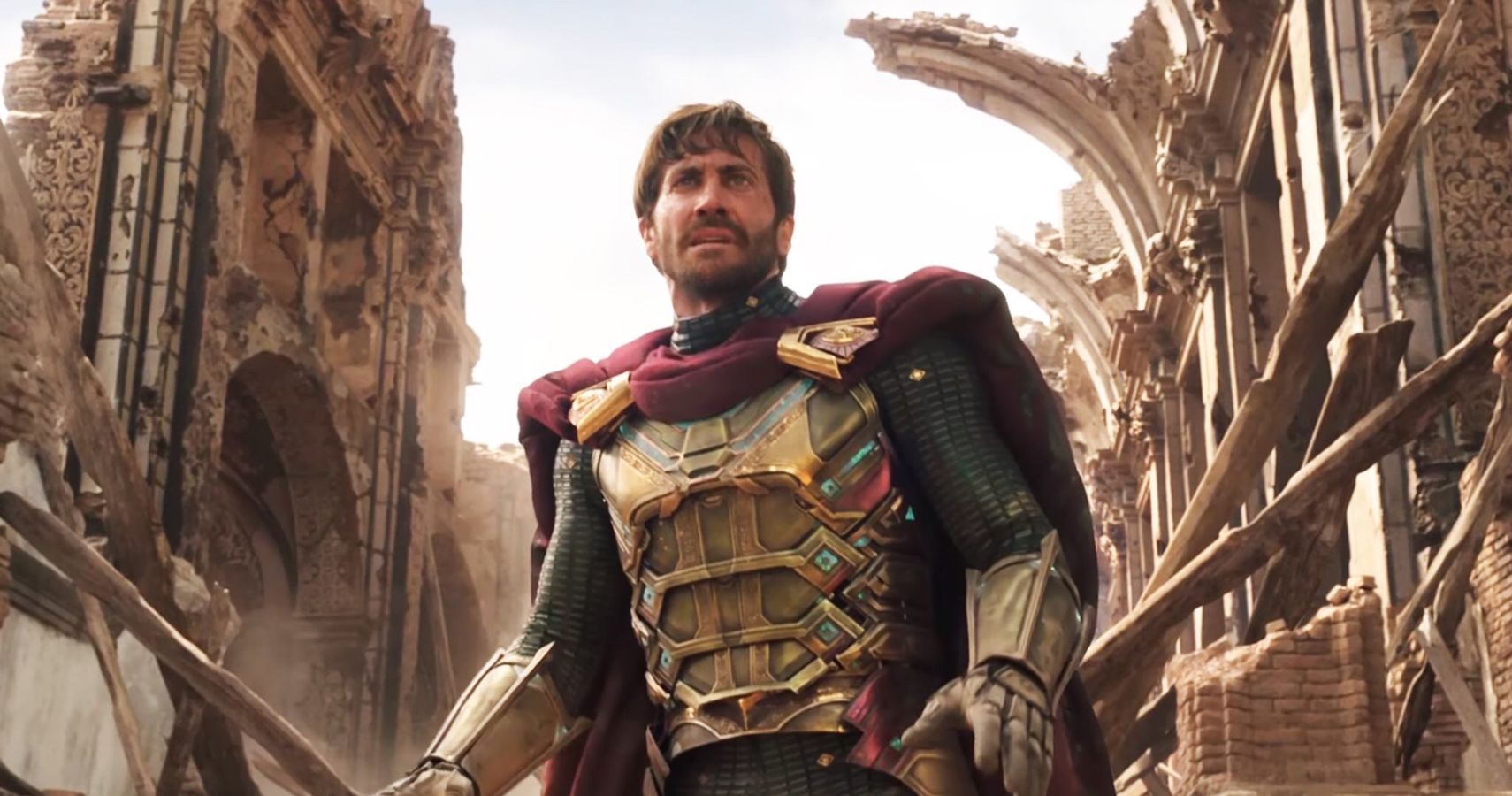WARNING: This article contains spoilers for Spider-Man: Far From Home, in theaters now.
The first image that follows the Marvel Studios logo in Spider-Man: Far From Home is a picture of Tony Stark. Whitney Houston's "I Will Always Love You" plays over in what turns out to be the beginning of a slideshow video on the Midtown Science High School news broadcast remembering the dead Avengers. That's just the first of many times in which we're shown how the world is mourning Iron Man.
Peter Parker is, of course, mourning Tony on a personal level. He's lost his mentor and been entrusted with control over some serious Stark weaponry. He's also had to fend for himself as one of the only active and available Avengers remaining. His internal struggle over whether he's worthy of carrying on Tony's legacy is one of the film's main concerns.
Beyond saving the world and supporting Spider-Man, though, Tony Stark's most important legacy in the MCU is a darker one: He and his company must be responsible for inspiring many, if not most of, the supervillains running around on Earth. Far From Home takes this further than any Marvel film before.
"Guy who feels hurt by Stark Industries" is almost as much an MCU villain cliche as "villain with the same powers as the hero." It makes sense these two archetypes became so dominant when the first MCU villain, Obadiah Stane in the first Iron Man film, was both of the above.
Stane is as unsympathetic as the "slighted by Stark" villains get. He was already a bad guy before Tony became Iron Man, being responsible for much of Stark Industries' bad practices in the first place. His big beef with Tony was that Tony wanted to make the company less likely to supply terrorists with weapons.
In Iron Man 2, Ivan Vanko's out for revenge against the Stark family due to how Howard Stark drove his former inventing partner Anton Vanko into poverty. For Iron Man 3's villain, Aldrich Killian, the grudge is more personal, with Tony having bullied him at a New Year's party and refusing to offer support to his Advanced Idea Mechanics project.
Avengers: Age of Ultron gave us a villain literally created by Tony Stark in the form of the robot Ultron. Quicksilver and Scarlet Witch eventually become heroes, but they start off the movie as villains, in part created by Stark. The twins have the greatest reason to hate Stark of all: One of his company's missiles killed their parents.
Zemo in Captain America: Civil War has a vendetta against the Avengers in general over the destruction of Sokovia, but it's Iron Man in particular who's called out as his son's favorite and thus the one he feels the most singularly betrayed by. Tony's own stance on the Sokovia Accords is driven mainly by his own guilt over how much damage he's caused over the years.
Spider-Man: Homecoming had one of the most charismatic "screwed by Stark" villains in Adrian Toomes/The Vulture. This small businessman lost the clean-up contract for the Battle of New York to Stark's own Damage Control. While Homecoming wasn't as Iron Man-focused as its marketing made it out to be, Toomes is a villain who'd be right at home in one of the Iron Man movies.
In Spider-Man: Far From Home, it's no surprise to anyone familiar with the comics that Quentin Beck/Mysterio is the film's main villain. It's only slightly less surprising that his whole "multiverse" backstory discussed in the trailers is one of his many bald-faced lies. After successfully convincing Peter to give him control over the EDITH weapons system, his true motivation is revealed to the audience.
Mysterio's superpowers are all elaborate special effects creations. So are the elemental monsters he fights. It turns out his holographic technology is a type we've seen before in the form Tony Stark's talk with virtual recreations of his parents in Civil War. Quentin Beck is bitter that Tony stole his invention for the sake of "therapy." He's also convinced the only reason the public cares about Tony and not other inventors is because of his superhero persona, which is why he goes so far to trick others into buying his made up hero shtick.
The writers of Far From Home are aware that this sort of bad guy motivation has become awfully familiar by now. Because of this, the movie leans into this familiarity to the point that it becomes comical. After Beck reveals his backstory, we get reveals for the backstories of all his henchmen, each of whom has some sort of motive for revenge against Tony Stark, illustrated in flashbacks to the events of previous movies. It's a hilarious sequence that practically doubles the already high number of "screwed by Stark" MCU antagonists.
So, Tony Stark's legacy overwhelmingly involves inspiring legions of bad guys who hate him. Some hate him for legitimate reasons, others for incredibly petty ones, but the sheer number of them does beg the question of how much Iron Man actually made the world safer when he's at least partially responsible for so many criminals. That Tony was a likable and heroic figure at all was due to the guilt he felt over hurting so many people and the sacrifices he made to atone for his sins.
Peter Parker is ultimately only able to accept his own struggles with the responsibility of filling Tony Stark's shoes when he understands the ways his mentor struggled even more dramatically. Spider-Man isn't the next Iron Man. He's better.
Directed by Jon Watts, Spider-Man: Far From Home stars Tom Holland, Samuel L. Jackson, Zendaya, Cobie Smulders, Jon Favreau, JB Smoove, Jacob Batalon and Martin Starr, with Marisa Tomei and Jake Gyllenhaal.

